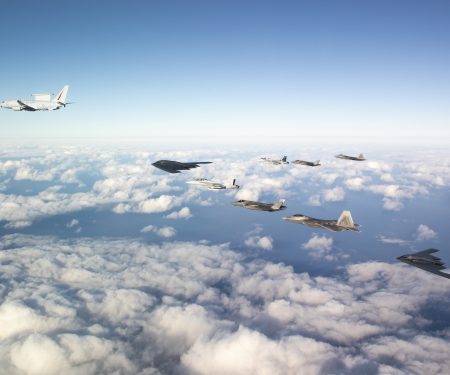Air Force Orders Force-Wide Inspection of M18s in Wake of Airman’s Death
No Slowdown in Demand for Air Force Bombers, 4-Star Says
Commercial and Military Space Must Advance Together
Radar Sweep
Pentagon Asks to Move $150M to Speed Up Air Force One By 2 Years
The Defense Department is asking Congress for permission to redirect $5.4 billion in previously approved money to other programs—including an effort to speed up the delivery of two Air Force One presidential jets.
Air Force Rebrands Facebook Page to Combat Rumors, Leaked Memos and Reddit Threads
A long-standing Air Force Facebook page created to represent its top enlisted leader has been renamed and rebranded as a news source—an apparent move by the service to control online conversation and messaging within the ranks.
Alaska Senator Blocks Navy Chief Confirmation
Republican Dan Sullivan is holding up Adm. Daryl Caudle’s nomination until the Pentagon agrees to reopen a long-shuttered military base.
Nominee to Head DOT&E Waves Off Lawmaker Concerns About Cuts to Office
Lawmakers on the Senate Armed Services Committee questioned the nominee picked to lead the Pentagon's independent weapons testing office July 31 on how the fallout from planned personnel cuts could impact her ability to do the job.
F-35C Crashes At Naval Air Station Lemoore
NAS Lemoore is the Navy's master strike fighter base on the West Coast.
No, The Army Is Not Introducing a New ‘Tank Top’ PT Uniform
When the Army’s vice chief of staff wore a tank top in an Army video, soldiers thought it was a vision of their fitness future.





